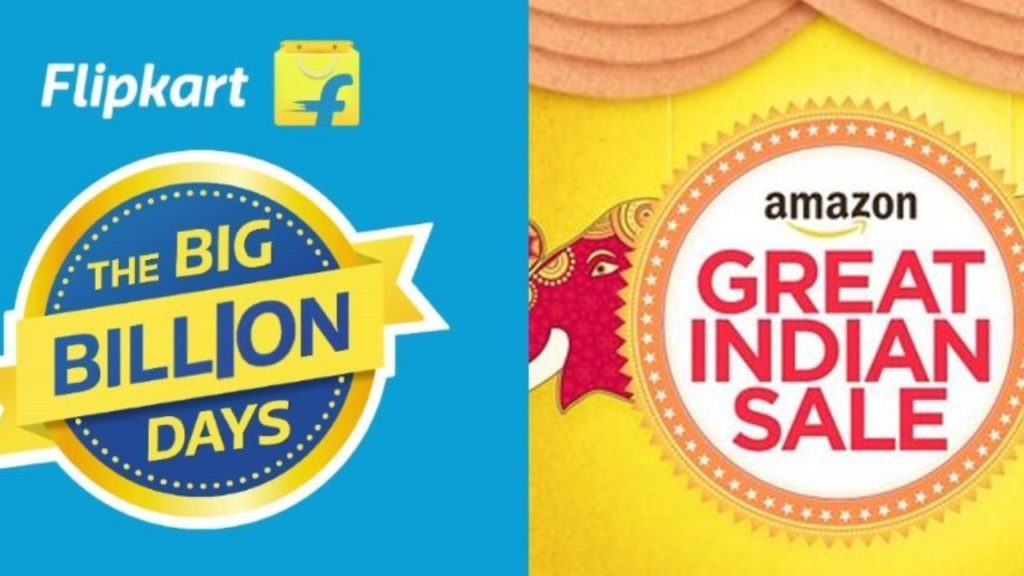CAIT Demands Ban On Flipkart, Amazon Festival Sales; Declares Them Illegal & Illogical

While E-commerce giants Amazon and Flipkart are gearing up for the upcoming festival season sales, CAIT demanding a ban on these sales saying they are violating FDI norms by organizing these sales.
The story unfolds when on 17 September, CIAT (Confederation of All India Traders) said that e-commerce companies such as Amazon and Flipkart are violating government’s Foreign Direct Investment(FDI) policy by organizing almost a week-long sales.
By considering upcoming festivals in India, Amazon has announced the Great Indian Festival sale and its rival Flipkart has also arranged for Flipkart Big Billion Days sale during the same time from 29 September to 4 October in Indian. Around five lac sellers will participate in the Great Indian Festival sale as mentioned by Amazon India.
Although this time, it is different then earlier wherein they are promoting bank discounts and easy financing options for customers available in partnership with banks. Earlier they used to promote discounts in different categories. Though this time Flipkart has disclosed a discount on some of the smartphone brands too.
What Causes Resistance?
According to Press Note 2, which governs e-commerce marketplaces in India, prohibits e-commerce marketplaces to directly or indirectly influence the product prices.
The Secretary-General, CAIT, Praveen Khandelwal said that “We have asked the government to put a ban on these festival sales because the festival sales are against the norms set out by the government under the FDI policy,”. He also said that the marketplaces are indulging in B2B businesses and are also influencing the prices of the products.
E-commerce Company Not Disclosing Sellers Name
According to CAIT the E-commerce companies are not disclosing their exclusive tie-ups with different vendors. These tie-ups can be considered as the backbone behind these sales.
More importantly, FDI policy has confined these companies to have any forced exclusive tie-up with any brand or sellers in India.
CAIT demanded to share their first 10 seller’s name in the past five years out of the lacs of sellers they have on their platforms. CAIT confirms that the same set of sellers are selling 80% of products through these platforms and others don’t get a fair opportunity of doing business on the same.
They also said that e-commerce companies are deciding the prices for goods instead of sellers and discounts are funded by their investors. (reference Moneycontrol)
Confederation of All India Traders is a Non-governmental organization in Delhi, their mission is to create a business-friendly environment in the Country beside upgrading and modernizing existing format of retail trade and development of skills of the traders in India.
The Senior Vice President and Chief Corporate Affairs Officer of the Flipkart Group, Rajneesh Kumar said “We are a fully compliant organization and take pride in creating enormous value to India in terms of boosting economic activity, supporting local manufacturing, Indian handicrafts and creating lakhs of new jobs directly and indirectly in line with the vision of Hon’ble PM Modi and supporting Make in India by bringing sellers to the market,”.
The irony of the situation is at it’s best as one side, normal people are adding items in their shopping lists in preparation for upcoming festivals with enthusiasm in their eyes while on the side, the seller part of the community especially retailers whose business is being affected by these sales are looking for some relief from the government.

Comments are closed, but trackbacks and pingbacks are open.